Microbiome
How to submit an article:
- Registered users can submit any published journal article that has a unique DOI (Digital Object Identifier) name or link to Research Hub.
- For example, you can paste the full DOI link:
https://doi.org/10.1109/5.771073or just the DOI name:10.1109/5.771073into the field above and click submit. - The person who is first to submit a valid article to Research Hub will forever be credited for it, and every article submission earns you +6 Research Points.
Related Topics
Published research studies are articles that present the findings of original research that has undergone a peer-review process and has been made publicly available in scholarly journals, books or other media.

A dietary intervention for postmenopausal hot flashes: A potential role of gut microbiome. An exploratory analysis
2023 Dec Complementary Therapies in Medicine Kahleova H, Holtz DN, Strom N, La Reau A, Kolipaka S, Schmidt N, et al.
Randomised Controlled Trial Hot Flushes Plant-Based Diet Low Fat Diet Gut Microbiota SoybeanChanges in gut microbiome associated with a low-fat, vegan diet and cooked soybeans may reduce the frequency and severity of postmenopausal hot flashes.
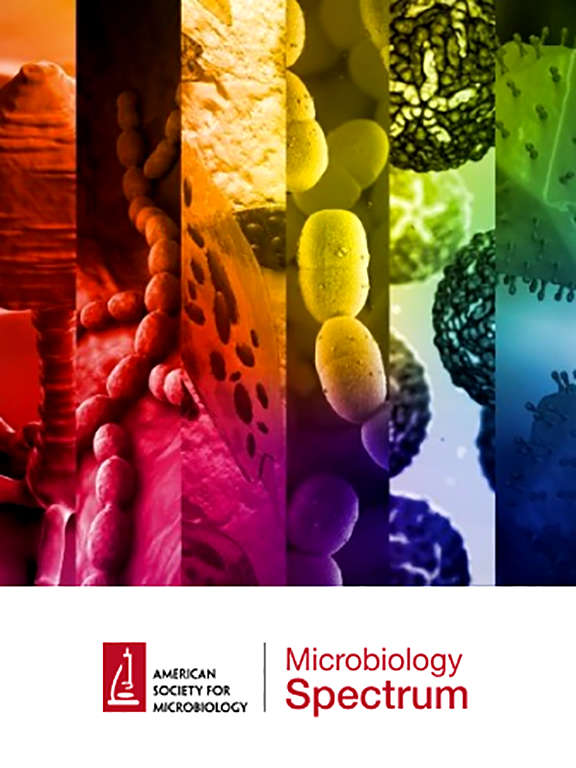
The Effect of Oral Iron Supplementation on Gut Microbial Composition: a Secondary Analysis of a Double-Blind, Randomized Controlled Trial among Cambodian Women of Reproductive Age
2023 Jun 15 Microbiology Spectrum Finlayson-Trick E, Nearing J, Fischer JAJ, Ma Y, Wang S, Krouen H, et al.
Randomised Controlled Trial Iron DeficiencyIron supplementation with ferrous bisglycinate in Cambodian women of reproductive age may increase the abundance of certain bacteria, including potential enteric pathogens.
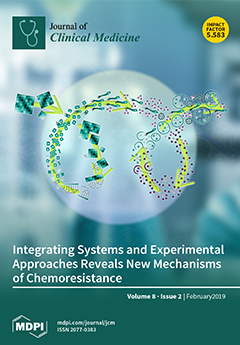
Intestinal Microbiota Reduction Followed by Fasting Discloses Microbial Triggering of Inflammation in Rheumatoid Arthritis
2023 Jun 28 Journal of Clinical Medicine Häupl T, Sörensen T, Smiljanovic B, Darcy M, Scheder-Bieschin J, Steckhan N, et al.
Clinical Study Inflammation Rheumatoid ArthritisRheumatoid arthritis-specific inflammation can be linked directly to the intestinal microbiota, thus, nutritional interventions against gut dysbiosis could function as a causal therapeutic approach.
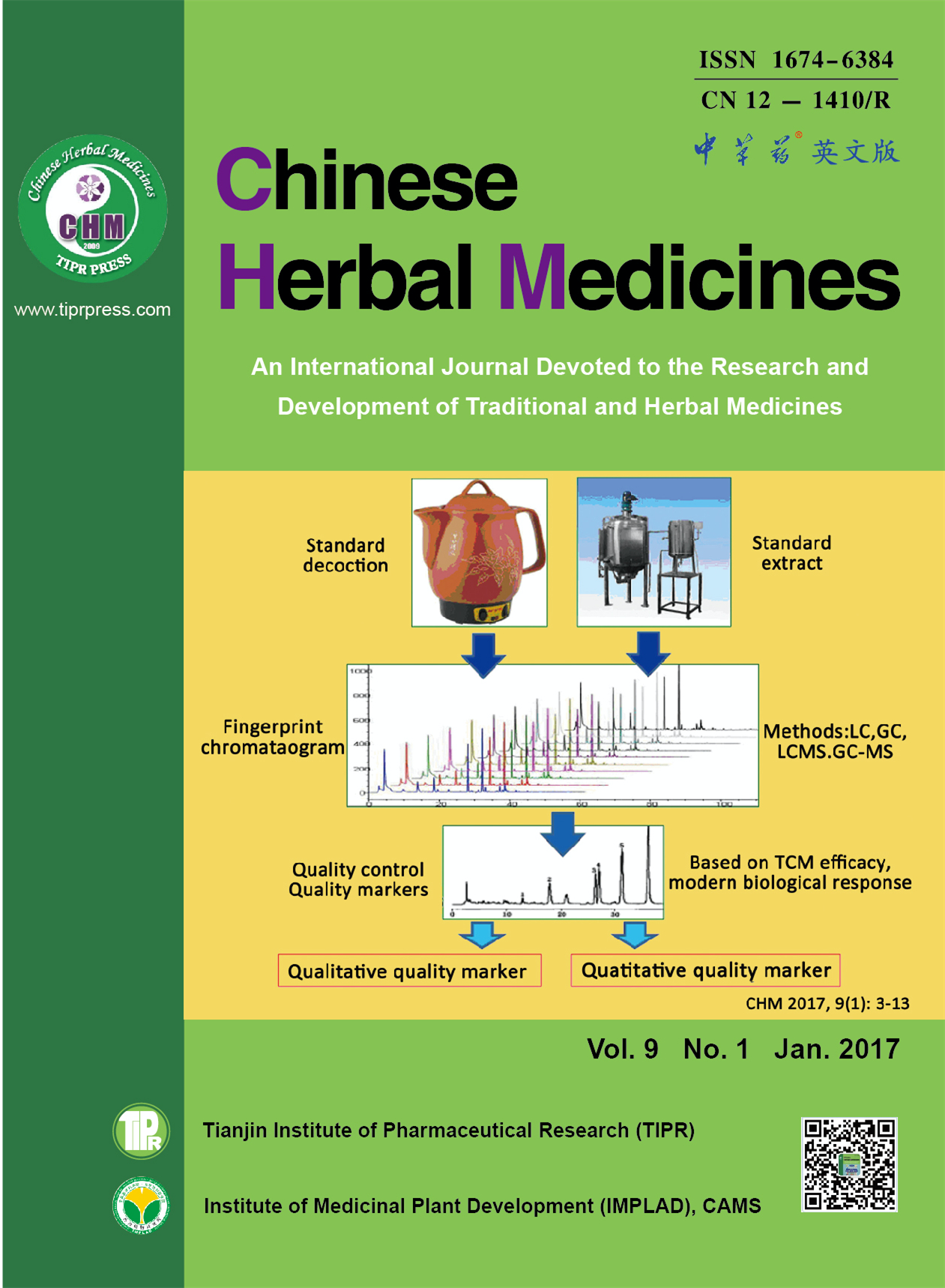
Chinese herbal medicines for treating ulcerative colitis via regulating gut microbiota-intestinal immunity axis
2023 Apr Chinese Herbal Medicines Yang Y, Wang Y, Zhao L, Wang F, Li M, Wang Q, et al.
Review Article Gut Microbiota Ulcerative ColitisChinese herbal medicines could potentially relieve ulcerative colitis by moderating the gut microbiota and intestinal immunity loop.
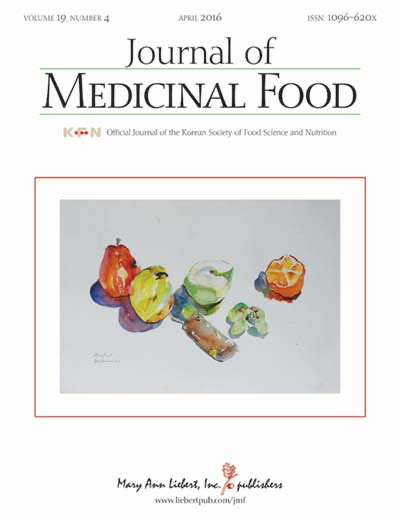
Effects of Pear Extracts on Microbiome and Immunocytokines to Alleviate Air Pollution-Related Respiratory Hypersensitivity
2023 Mar 01 Journal of Medicinal Food Yang M, Lee U, Cho HR, Lee KB, Shin YJ, Bae MJ, et al.
Randomised Controlled Trial Air Pollution Asthma Gut Microbiota PearKorean pear extracts appear to alleviate air pollution-related respiratory hypersensitivity by modulating beneficial gut microflora and suppressing pro-inflammatory cytokines.
Research insights are moderated by the Research Hub team and offer an at-a-glance overview of interesting research findings.

2023 Complementary Therapies in Medicine
Changes in gut microbiome associated with a low-fat, vegan diet and cooked soybeans may reduce the frequency and severity of postmenopausal hot flashes.
Randomised Controlled Trial Gut Microbiota Hot Flushes Low Fat Diet Plant-Based Diet Soybean
A dietary intervention for postmenopausal hot flashes: A potential role of gut microbiome. An exploratory analysis
Kahleova H, Holtz DN, Strom N, La Reau A, Kolipaka S, Schmidt N, et al.

2023 Journal of Clinical Medicine
Rheumatoid arthritis-specific inflammation can be linked directly to the intestinal microbiota, thus, nutritional interventions against gut dysbiosis could function as a causal therapeutic approach.
Clinical Study Inflammation Rheumatoid Arthritis
Intestinal Microbiota Reduction Followed by Fasting Discloses Microbial Triggering of Inflammation in Rheumatoid Arthritis
Häupl T, Sörensen T, Smiljanovic B, Darcy M, Scheder-Bieschin J, Steckhan N, et al.

2023 Microbiology Spectrum
Iron supplementation with ferrous bisglycinate in Cambodian women of reproductive age may increase the abundance of certain bacteria, including potential enteric pathogens.
Randomised Controlled Trial Iron Deficiency
The Effect of Oral Iron Supplementation on Gut Microbial Composition: a Secondary Analysis of a Double-Blind, Randomized Controlled Trial among Cambodian Women of Reproductive Age
Finlayson-Trick E, Nearing J, Fischer JAJ, Ma Y, Wang S, Krouen H, et al.

2023 Chinese Herbal Medicines
Chinese herbal medicines could potentially relieve ulcerative colitis by moderating the gut microbiota and intestinal immunity loop.
Review Article Gut Microbiota Ulcerative Colitis
Chinese herbal medicines for treating ulcerative colitis via regulating gut microbiota-intestinal immunity axis
Yang Y, Wang Y, Zhao L, Wang F, Li M, Wang Q, et al.

2023 Journal of Medicinal Food
Korean pear extracts appear to alleviate air pollution-related respiratory hypersensitivity by modulating beneficial gut microflora and suppressing pro-inflammatory cytokines.
Randomised Controlled Trial Air Pollution Asthma Gut Microbiota Pear
Effects of Pear Extracts on Microbiome and Immunocytokines to Alleviate Air Pollution-Related Respiratory Hypersensitivity
Yang M, Lee U, Cho HR, Lee KB, Shin YJ, Bae MJ, et al.
Review Articles
Review articles summarise and critically evaluate the current state of research on a specific topic or field by synthesising multiple primary research studies.

Chinese herbal medicines for treating ulcerative colitis via regulating gut microbiota-intestinal immunity axis
2023 Apr Chinese Herbal Medicines Yang Y, Wang Y, Zhao L, Wang F, Li M, Wang Q, et al.
Review Article Gut Microbiota Ulcerative ColitisChinese herbal medicines could potentially relieve ulcerative colitis by moderating the gut microbiota and intestinal immunity loop.

Holism of Chinese herbal medicine prescriptions for inflammatory bowel disease: A review based on clinical evidence and experimental research
2022 Jul Phytomedicine Zhang S, Luo H, Tan D, Peng B, Zhong Z, Wang Y
Review Article Inflammatory Bowel DiseaseChinese Herbal Medicine Prescriptions (CHMPs) have demonstrated to be potentially effective in managing Inflammatory Bowel Disease (IBD) with a comprehensive, holistic approach.
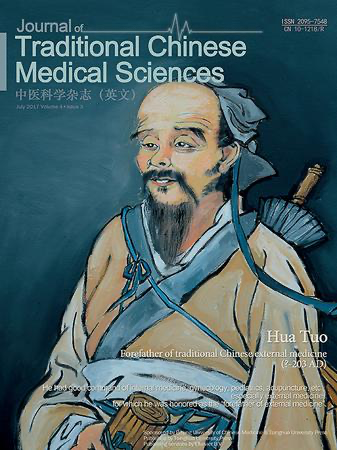
Pu-erh tea: A review of a healthful brew
2022 Apr Journal of Traditional Chinese Medical Sciences Jia W, Rajani C, Lv A, Fan TP, Zheng X
Review Article Pu-Erh Tea Gut Microbiota Metabolic SyndromePu-erh tea possesses therapeutic mechanisms potentially beneficial for metabolic diseases due to its interaction with liver and gut microbiome.

Maximizing the Estrogenic Potential of Soy Isoflavones through the Gut Microbiome: Implication for Cardiometabolic Health in Postmenopausal Women
2022 Jan 27 Nutrients Leonard LM, Choi MS, Cross TWL
Review Article Equol Oestrogen Gut Microbiota Soybean IsoflavoneEquol, a powerful estrogen-like compound derived from soy, could be key to better health in postmenopausal women if gut microbiome could be altered to facilitate its production.
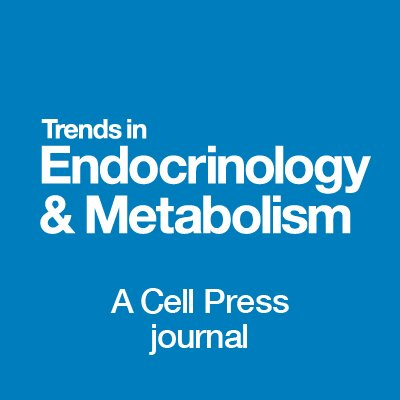
Of ‘junk food’ and ‘brain food’: how parental diet influences offspring neurobiology and behaviour
2021 Aug Trends in Endocrinology & Metabolism Bodden C, Hannan AJ, Reichelt AC
The study concludes that unhealthy lifestyles, particularly diet-induced maternal and paternal programming, may influence infant metabolism and neurobehavioral function, with potential downstream effects on mental health and resilience. The intergenerational seeding of the gut microbiome via parental lineage is identified as a crucial factor affecting offspring gut health and neurobiology.
Review Article Unhealthy Lifestyles Brain Food Children's Health Junk Food NeurobiologyClinical Trials
Clinical trials are research studies that involve people and are conducted to evaluate the safety and efficacy of new treatments or interventions, such as drugs, medical devices, or behavioural therapies.

A dietary intervention for postmenopausal hot flashes: A potential role of gut microbiome. An exploratory analysis
2023 Dec Complementary Therapies in Medicine Kahleova H, Holtz DN, Strom N, La Reau A, Kolipaka S, Schmidt N, et al.
Randomised Controlled Trial Hot Flushes Plant-Based Diet Low Fat Diet Gut Microbiota SoybeanChanges in gut microbiome associated with a low-fat, vegan diet and cooked soybeans may reduce the frequency and severity of postmenopausal hot flashes.

The Effect of Oral Iron Supplementation on Gut Microbial Composition: a Secondary Analysis of a Double-Blind, Randomized Controlled Trial among Cambodian Women of Reproductive Age
2023 Jun 15 Microbiology Spectrum Finlayson-Trick E, Nearing J, Fischer JAJ, Ma Y, Wang S, Krouen H, et al.
Randomised Controlled Trial Iron DeficiencyIron supplementation with ferrous bisglycinate in Cambodian women of reproductive age may increase the abundance of certain bacteria, including potential enteric pathogens.

Effects of Pear Extracts on Microbiome and Immunocytokines to Alleviate Air Pollution-Related Respiratory Hypersensitivity
2023 Mar 01 Journal of Medicinal Food Yang M, Lee U, Cho HR, Lee KB, Shin YJ, Bae MJ, et al.
Randomised Controlled Trial Air Pollution Asthma Gut Microbiota PearKorean pear extracts appear to alleviate air pollution-related respiratory hypersensitivity by modulating beneficial gut microflora and suppressing pro-inflammatory cytokines.

Thirty Days of Montmorency Tart Cherry Supplementation Has No Effect on Gut Microbiome Composition, Inflammation, or Glycemic Control in Healthy Adults
2021 Sep 16 Frontiers in Nutrition Hillman AR, Chrismas BCR
No significant alterations in the gut microbiome, and no significant impact of MTC supplementation on inflammation or glucose regulation. These results may partially be due to the use of a healthy population, who did not have inflammatory conditions and thus future work may need to focus on clinical populations.
Randomised Controlled Trial Gut Microbiota CherryStudy Protocols
Published study protocols are detailed plans that outline the objectives, methodology, statistical analyses, and organisation of a research study that have been made publicly available for others to review and use as a reference.
Presentation Slides

Randomised Controlled Trial
Changes in gut microbiome associated with a low-fat, vegan diet and cooked soybeans may reduce the frequency and severity of postmenopausal hot flashes.
Kahleova H, Holtz DN, Strom N, La Reau A, Kolipaka S, Schmidt N, Hata E, Znayenko-Miller T, Holubkov R, Barnard ND

Clinical Study
Rheumatoid arthritis-specific inflammation can be linked directly to the intestinal microbiota, thus, nutritional interventions against gut dysbiosis could function as a causal therapeutic approach.
Häupl T, Sörensen T, Smiljanovic B, Darcy M, Scheder-Bieschin J, Steckhan N, Hartmann AM, Koppold DA, Stuhlmüller B, Skriner K, Walewska BM, Hoppe B, Bonin M, Burmester GR, Schendel P, Feist E, Liere K, Meixner M, Kessler C, Grützkau A, Michalsen A

Randomised Controlled Trial
Iron supplementation with ferrous bisglycinate in Cambodian women of reproductive age may increase the abundance of certain bacteria, including potential enteric pathogens.
Finlayson-Trick E, Nearing J, Fischer JAJ, Ma Y, Wang S, Krouen H, Goldfarb DM, Karakochuk CD

Review Article
Chinese herbal medicines could potentially relieve ulcerative colitis by moderating the gut microbiota and intestinal immunity loop.
Yang Y, Wang Y, Zhao L, Wang F, Li M, Wang Q, Luo H, Zhao Q, Zeng J, Zhao Y, Du F, Chen Y, Shen J, Wei S, Xiao Z, Wu X

Randomised Controlled Trial
Korean pear extracts appear to alleviate air pollution-related respiratory hypersensitivity by modulating beneficial gut microflora and suppressing pro-inflammatory cytokines.
Yang M, Lee U, Cho HR, Lee KB, Shin YJ, Bae MJ, Park KY
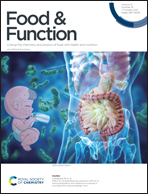
Experimental Study
Pu-erh tea can potentially prevent depression-like behaviors induced by nighttime blue light from electronic devices by reshaping gut microbiota and increasing short-chain fatty acids generation.
Zhao S, Hu S, Sun K, Luo L, Zeng L

Review Article
Chinese Herbal Medicine Prescriptions (CHMPs) have demonstrated to be potentially effective in managing Inflammatory Bowel Disease (IBD) with a comprehensive, holistic approach.
Zhang S, Luo H, Tan D, Peng B, Zhong Z, Wang Y

Review Article
Pu-erh tea possesses therapeutic mechanisms potentially beneficial for metabolic diseases due to its interaction with liver and gut microbiome.
Jia W, Rajani C, Lv A, Fan TP, Zheng X

Review Article
Equol, a powerful estrogen-like compound derived from soy, could be key to better health in postmenopausal women if gut microbiome could be altered to facilitate its production.
Leonard LM, Choi MS, Cross TWL
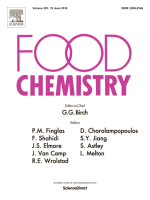
Review Article
Pu-erh tea, with its complex components, interacts greatly with gut microbiomes and holds significant potential for healthcare applications.
Liu JY, He D, Xing YF, Zeng W, Ren K, Zhang C, Lu Y, Yang S, Ou SJ, Wang Y, Xing XH
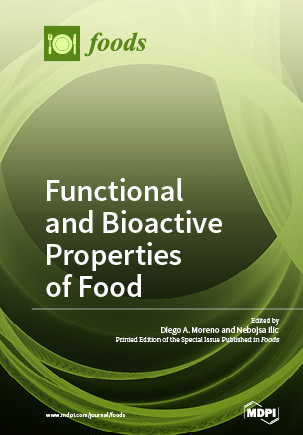
Review Article
Fermented soybean products alleviate and possibly prevent neurodegenerative conditions, including Parkinson's and Alzheimer's diseases.
Jang CH, Oh J, Lim JS, Kim HJ, Kim JS

Review Article
Beverages, through their diverse nutritional contents, have notable effects on rheumatoid arthritis progression by interacting with immune signaling pathways and altering the microbiome.
Dey M, Cutolo M, Nikiphorou E

Experimental Study
Unpasteurised milk and dairy products intake could potentially alter gut microbiome composition which may influence psychological functioning.
Butler MI, Bastiaanssen TFS, Long-Smith C, Berding K, Morkl S, Cusack AM, Strain C, Busca K, Porteous-Allen P, Claesson MJ, Stanton C, Cryan JF, Allen D, Dinan TG

Theoretical Article
Consumption of oat β-glucan may lower cholesterol and risk of cardiovascular disease by altering gut bacteria and their effects on bile acid and cholesterol metabolism.
Joyce SA, Kamil A, Fleige L, Gahan CGM
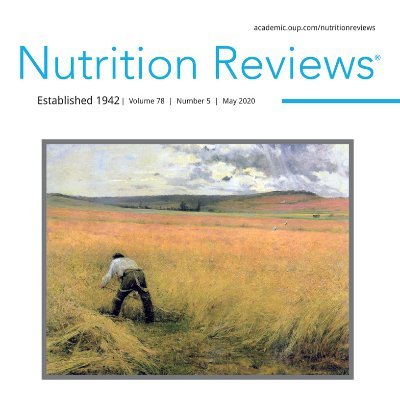
Review Article
Oats improve gastrointestinal health, reduce cholesterol, and regulate satiety, with effects on the gut microbiome constituting an appealing new research area.
Korczak R, Kocher M, Swanson KS

Experimental Study
Pu-erh tea's fermentation process alters its microbial community, with aging significantly impacting raw but not ripened Pu-erh, and toxic metabolites present support brewing customs.
Zhang Y, Skaar I, Sulyok M, Liu X, Rao M, et al.
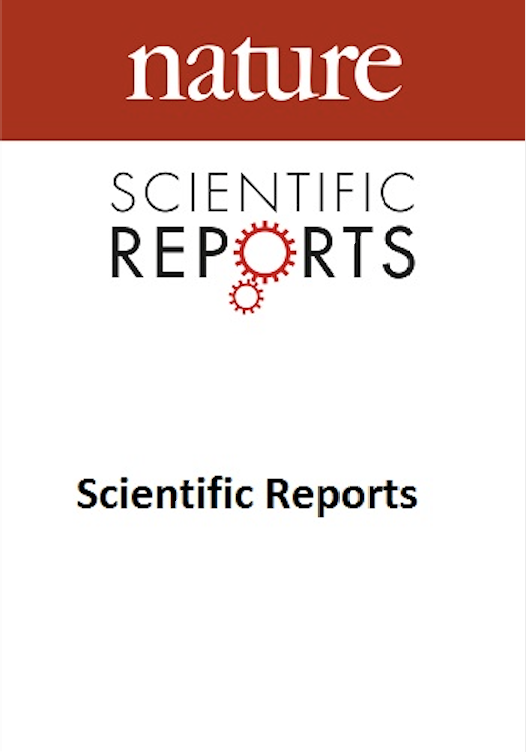
The traditional Chinese medicine diagnosis of Cold and Hot Syndromes based on tongue-coating appearance successfully detects signals in the tongue-coating microbiomes that are indicators of the entire body's status.
Bai Jiang, Xujun Liang, Yang Chen, Tao Ma, Liyang Liu, Junfeng Li, Rui Jiang, Ting Chen, Xuegong Zhang & Shao Li
Executive Summary
Write an executive summary in the form of a blog article on the topic of "Research into Chinese medicine treatment for Microbiome" summarising the research below and using language that can be easily understood by patients and avoiding medical jargon using a professional and caring tone of voice.
Write an executive summary in the form of a blog article on the topic of "Researched Chinese medicine treatments for Microbiome" summarising the research below in an objective and easy to understand way, and using language that can be easily understood by patients. Group the article into Chinese medicine treatments first, followed by nutrition and other treatments. Avoid using medical jargon and use a professional and caring tone of voice.
Write me a concise but easy to understand executive summary on the topic of "Chinese medicine treatments for Microbiome" based on the following research that I will give you. Your summary should be 2 paragraphs long in Australian English spelling and include references to the studies.
A Randomised Controlled Trial published in 2023 in the journal Complementary Therapies in Medicine found that Changes in gut microbiome associated with a low-fat, vegan diet and cooked soybeans may reduce the frequency and severity of postmenopausal hot flashes. In this study, 84 postmenopausal women experiencing two or more moderate-to-severe hot flashes daily were randomly assigned to a low-fat, vegan diet with daily cooked soybeans or allowed to maintain their usual diet. Over a 12-week period, the frequency and severity of hot flashes were tracked using a mobile application. In 11 women from the group, gut microbiome was analyzed at the start and after 12 weeks of the dietary intervention, using deep shotgun metagenomic sequencing. The women who underwent gut microbiome testing experienced a substantial decrease in total hot flashes during the dietary intervention, and severe hot flashes disappeared entirely in this group. Alpha and beta diversity within the microbiome showed no significant difference in the intervention group between baseline and the end of the 12 weeks. Interestingly, adjustments in the relative abundance of certain bacterial strains, notably Porphyromonas and Prevotella corporis, were linked with the reduction in severe day hot flashes, while changes in the relative abundance of Clostridium asparagiforme were associated with a reduction in total severe hot flashes and severe night hot flashes.
A Clinical Study published in 2023 in the journal Journal of Clinical Medicine found that Rheumatoid arthritis-specific inflammation can be linked directly to the intestinal microbiota, thus, nutritional interventions against gut dysbiosis could function as a causal therapeutic approach. The study initiated by reducing the intestinal microbiome in 20 Rheumatoid Arthritis patients through bowel cleansing and a week of fasting, limiting the intake to 250 kcal/day. It also employed immune monitoring and sequencing of the microbiome. A control group constituting patients with metabolic syndrome was incorporated to serve as a non-inflammatory baseline. To understand the fluctuation and impact on disease activity, disease activity scores were calculated and cytometric profiling was performed, tracing up to 46 different surface markers. Additionally, serum levels of certain cytokines and indicators of mucosal barrier disruption were monitored. The change in intestinal microbiota, i.e., the effect of fasting on arthritogenic bacteria and the shift in microbial composition, was analyzed using sequencing. The detection of more eukaryotic, predominantly fungal colonizers in RA patients was also observed to understand their potential involvement. Finally, the study investigated the observed increase in endogenous cortisol levels during fasting.
A Randomised Controlled Trial published in 2023 in the journal Microbiology Spectrum found that Iron supplementation with ferrous bisglycinate in Cambodian women of reproductive age may increase the abundance of certain bacteria, including potential enteric pathogens. The study involved a secondary analysis of a double-blinded, randomized controlled trial examining the impact of two different oral iron supplements, ferrous sulfate and ferrous bisglycinate, or placebo on the gut microbiomes in Cambodian women of reproductive age (WRA) over a period of 12 weeks. Stool samples were provided by the participants at the beginning and end of the study for gut microbial analysis. This analysis consisted of 16S rRNA gene sequencing and targeted real-time PCR. In terms of results, it was found that iron supplementation did not significantly change the overall diversity of the gut microbiome in these predominantly iron-replete Cambodian WRA. However, ferrous bisglycinate did lead to an increase in the relative abundance of and showed a trend of an increase for another strain of bacteria, Escherichia. Furthermore, the presence of a virulence gene associated with enteropathogenic Escherichia coli was detected in a greater quantity in the stool samples of those who took ferrous sulfate. This suggests that while the overall biodiversity of the gut microbiome remained stable, certain potential pathogen-associated bacterial populations may have increased due to the iron supplementation.
A Review Article published in 2023 in the journal Chinese Herbal Medicines found that Chinese herbal medicines could potentially relieve ulcerative colitis by moderating the gut microbiota and intestinal immunity loop. The study emphasizes on the possible use of Chinese herbal medicines, which include single herbs, herbal formulas and derived constituents, in treating ulcerative colitis (UC), a recurring inflammatory bowel disease. With a focus on how these medicines interact with and modify the gut microbiota, the mechanism involves regulating the intestinal homeostasis to counter UC. It deals with balancing microbial dysbiosis, or the imbalance of microbes in the body, and abnormal gut immunity, two key initiators of inflammatory responses in UC. The paper reviews several clinical trials which have been conducted, all exhibiting the effectiveness of Chinese herbal medicines on patients diagnosed with UC. In the trials, these derived substances have shown a protective effect against UC, offering the potential possibility of them being explored as conventional methods of UC treatments in the future. Not every trial has resulted in absolute success, but the overall results are promising and indicate a robust potential direction for UC treatment science.
A Randomised Controlled Trial published in 2023 in the journal Journal of Medicinal Food found that Korean pear extracts appear to alleviate air pollution-related respiratory hypersensitivity by modulating beneficial gut microflora and suppressing pro-inflammatory cytokines. In the preclinical and randomized double-blind clinical studies, mild-asthma subjects living in Seoul, Korea were divided into two groups: one receiving a daily treatment of pear extracts for four weeks, and a placebo group. The pear extract was tested for its ability to mitigate respiratory hypersensitivity connected to air pollution. The treatment's effects were evaluated based on the toxicokinetic study of exposure biomarkers for airborne polyaromatic hydrocarbons and levels of pro-inflammatory cytokines in human subjects. In terms of results, it was found that those individuals receiving daily pear extract exhibited decreased levels of exposure biomarkers related to airborne polyaromatic hydrocarbons. Furthermore, the pear extract treatment was associated with a significant increase in populations of fiber-degrading bacteria that boost beneficial gut microflora crucial for immune defense. Additionally, the extracts significantly suppressed the production of various pro-inflammatory cytokines, as per the preclinical tests conducted on asthma-induced mice. Overall, these outcomes suggest a beneficial role of Korean pear extracts in mitigating air pollution-related respiratory hypersensitivity.
A Experimental Study published in 2023 in the journal Food & Function found that Pu-erh tea can potentially prevent depression-like behaviors induced by nighttime blue light from electronic devices by reshaping gut microbiota and increasing short-chain fatty acids generation. The methodology used involved administering water or Pu-erh tea to two groups of mice for 120 days, followed by a 45-day exposure to a blue light simulating electronic equipment during the night. The effect of the tea and blue light on the mice's behavior and gut microbiota was then studied. Results indicated that the blue light induced depression-like behaviors and upset the gut microbiota in mice that were previously healthy. In the discussion of results, it was noted that the intake of Pu-erh tea significantly reshaped the mice's gut microbiota, especially the metabolism of short-chain fatty acids, which helped protect the integrity of the intestinal barrier. This improvement not only lessened damage to the blood-brain barrier, but also reduced neuroinflammation by inhibiting certain cellular pathways. This ultimately regulated neurotransmitters like brain-derived neurotrophic factor and serotonin, demonstrating the potential of Pu-erh tea to prevent blue light induced depression-like behaviors by impacting the gut-brain axis.
A Review Article published in 2022 in the journal Phytomedicine found that Chinese Herbal Medicine Prescriptions (CHMPs) have demonstrated to be potentially effective in managing Inflammatory Bowel Disease (IBD) with a comprehensive, holistic approach. In their methodology, the authors reviewed both preclinical and clinical researches to evaluate the effectiveness of CHMPs in treating IBD. They performed screenings of articles that highlighted the use of CHMP as a treatment option for IBD, giving them an insight into the complexity of the disease and the sophistication of CHMP treatments. Subsequently, they conducted an umbrella review of multiple meta-analyses linked to CHMPs to comprehend the efficacy of these herbal prescriptions in a clinical setting; they narrowed down from 1174 records to 12 substantial references for the review. In discussing their results, the authors analyzed a variety of 14 CHMPs that have a historical usage background and discussed their respective mechanisms of action. They delve into the inherent characteristics of the herbs used to provide a comprehensive understanding of the CHMPs. Recognizing the holistic nature being integral to CHMP, the authors discussed how the implementation of omics, studying the gut microbiome, and network pharmacology can enhance the understanding of CHMPs' bioactions in treating IBD.
A Review Article published in 2022 in the journal Journal of Traditional Chinese Medical Sciences found that Pu-erh tea possesses therapeutic mechanisms potentially beneficial for metabolic diseases due to its interaction with liver and gut microbiome. The methodology of this research involved reviewing and summarising the processing elements and bioactive components of pu-erh tea. Extensive study of relative human and animal trials was conducted, and the potential therapeutic mechanisms of this tea were examined and extrapolated. In discussing the results, it was discovered that pu-erh tea evidently has beneficial effects on metabolic diseases, such as hypocholesterolemic and hypolipidemic effects. The research points to the conclusion that the tea's interaction with the liver and gut microbiome is the major contributing factor to these health benefits. It helps regulate tea biotransformation and endogenous metabolism, underlining the tea's potential use in therapeutic interventions.
A Review Article published in 2022 in the journal Nutrients found that Equol, a powerful estrogen-like compound derived from soy, could be key to better health in postmenopausal women if gut microbiome could be altered to facilitate its production. The methodology of this research involved looking closely at the properties and actions of equol, a metabolite of the soy isoflavone daidzein. This substance is produced through the process of intestinal bacterial metabolism, but the ability to produce it is not present in over half of the human population due to the absence of specific equol-producing bacteria in the gastrointestinal tract. Given that the make up of the gut microbiome varies from person to person, understanding the effects of equol and daidzein in the human body has been a complex task. Furthermore, the fact that rodents easily produce equol complicates the matter, as findings from rodent models may not directly apply to humans. While interpreting the results, it was found that equol, due to its strong estrogenic activity, could potentially be an excellent means to manage postmenopausal symptoms and overall health. However, the ability to produce equol varies significantly among people, based on the bacterial microflora of their gut. Therefore, the benefits of equol could potentially be amplified by finding effective methods to manipulate the gut microbiome to foster equol production, a strategy that could lead to improved health outcomes for postmenopausal women.
A Review Article published in 2021 in the journal Food Chemistry found that Pu-erh tea, with its complex components, interacts greatly with gut microbiomes and holds significant potential for healthcare applications. Pu-erh tea undergoes a post-fermentation process involving various microorganisms, leading to highly complex components. This tea has its potential benefit due to its rich interactions with the gut microbiomes; the structure and the homeostasis of which are deeply connected to human wellness and progress of various diseases. This study provides a systemic review of the current findings pertaining to the bioactive components of Pu-erh tea and their interactions with gut microbiomes. For the discussion of results, the beneficial effects of Pu-erh tea on gut microbiomes may establish its role in healthcare. These benefits are due to the tea's bioactive components' impacts on the structure of the gut microbiomes, and subsequent health improvements. Additionally, the establishment of "components-function-indicators" clues can propel the standardisation of the tea's fermentation process and development of functional tea-related products.
A Review Article published in 2021 in the journal Foods found that Fermented soybean products alleviate and possibly prevent neurodegenerative conditions, including Parkinson's and Alzheimer's diseases. The study involved the fermentation of cooked soybeans with specified bacteria and fungi species, a process known to produce a range of bioactive compounds. These unique compounds, which are most often beneficial to health, are contained in fermented soybean products that are a staple in East Asian diets. In analyzing the results, the focus was on the potential of these fermented soy foods and their components in managing neurodegenerative diseases. Notably, the findings suggested a significant preventive and curative effect of these products on such ailments as Alzheimer's and Parkinson's diseases. The paper, therefore, presents fermented soy foods as potentially reliable natural solutions to these neurodegenerative conditions.
A Review Article published in 2020 in the journal Nutrients found that Beverages, through their diverse nutritional contents, have notable effects on rheumatoid arthritis progression by interacting with immune signaling pathways and altering the microbiome. The researchers reviewed existing literature to assess the role of various beverages in the context of rheumatoid arthritis. The primary focus of their study was understanding how the molecular contents of beverages such as coffee, tea, and wine, are contributing to the development and progression of the disease by interfering with immune signaling pathways. Moreover, they examined how these beverages affect the microbiome, leading to downstream effects on inflammatory pathways. The outcomes of the analysis indicate that beverages indeed play a pivotal role in the autoimmunity of rheumatoid arthritis. They found evidence that certain components present in beverages could either benefit the disease progression or negatively contribute to it. The researchers also discovered that considering beverages in the wider context of dietary patterns can help to better understand their role in disease management.
A Experimental Study published in 2020 in the journal Nutrients found that Unpasteurised milk and dairy products intake could potentially alter gut microbiome composition which may influence psychological functioning. In this observational study, the impact of dietary change involving unpasteurized dairy consumption on gut microbiota and psychological state was observed among participants of a 12-week residential cookery course on an organic farm. Twenty-four participants, who primarily consumed food from the farm including unpasteurised milk and dairy products, provided faecal samples at the beginning and end of the course. Concurrently, they completed self-report questionnaires touching on mood, anxiety, and sleep aspects and nutrient intake was monitored via a food frequency questionnaire. Gut microbiota analysis was carried out using 16S rRNA gene sequencing and measurement of faecal short chain fatty acids. Post-course, there was a significant growth in the relative abundance of a specific bacterial genus in the gut, associated with unpasteurised milk and dairy product intake. Furthermore, an increase in a particular faecal short chain fatty acid, valerate, was observed together with an elevation in the functional richness of the microbiome profile. The latter was determined by measuring the predicted neuroactive potential using a unique gut-brain module approach. Despite safety concerns, the consumption of unpasteurised milk and dairy products seemed to promote the growth of probiotic bacterial genus, known to be beneficial for various physical and mental health outcomes.
A Theoretical Article published in 2019 in the journal Frontiers in Nutrition found that Consumption of oat β-glucan may lower cholesterol and risk of cardiovascular disease by altering gut bacteria and their effects on bile acid and cholesterol metabolism. The research paper focused on studying the impact of oat β-glucan on cholesterol levels and cardiovascular disease risk. The methodology revolved around examining how consumption of oat β-glucan might change the gut microbiota, particularly bacterial species that influence bile acid metabolism and the production of short chain fatty acids. These factors are crucial regulators of cholesterol homeostasis in the host body. The research thus looked into the repercussions on bile acid metabolism, reverse cholesterol transport, short-chain fatty acid production, bacterial metabolism of cholesterol, and microbe-host signaling. The researchers found that oat β-glucan appears to have a significant effect on both the host's cholesterol levels and the composition and functionality of their gut microbiota, which in turn impacts bile acid metabolism and cholesterol homeostasis. It creates a potentially beneficial scenario where intestinal cholesterol may be removed for excretion. The results suggest that the benefits attributed to oat β-glucan are multifaceted and likely involve the regulation of complex interactions between microbes and the host at the level of the gastrointestinal interface. These novel insights demonstrate an interesting relationship between diet, gut microbiota, and host cholesterol metabolism.
A Review Article published in 2019 in the journal Nutrition Reviews found that Oats improve gastrointestinal health, reduce cholesterol, and regulate satiety, with effects on the gut microbiome constituting an appealing new research area. The researchers undertook a comprehensive literature review using predefined search criteria and keywords related to gastrointestinal health outcomes in the PubMed database. They sought to explore the impact of oats on gastrointestinal health in humans, with the intent to identify both human and animal studies, as well as in vitro studies, that met their specific inclusion criteria. They extracted data from eight human studies, nineteen animal trials, and five in vitro studies for this synthesis. The results underscore that oats, due to their unique composition of bioactive compounds, lipids, and β-glucan, have beneficial effects on gastrointestinal health. The human studies showed consistent beneficial outcomes, with complementary evidence from animal and in vitro studies. The degree of effect, however, appeared to vary depending on the type of oats and dosage used. For instance, oat types providing between 2.5 to 2.9 grams of β-glucan a day were found to decrease fecal pH and alter fecal bacteria, while 40 to 100 grams per day of oat bran was shown to boost bacterial mass and short-chain fatty acids in human feces. The researchers note that different study designs, methodologies, and types of oats used make comparing results challenging.
A Experimental Study published in 2016 in the journal PLOS One found that Pu-erh tea's fermentation process alters its microbial community, with aging significantly impacting raw but not ripened Pu-erh, and toxic metabolites present support brewing customs. The researchers looked into the microbial communities inherent in Pu-erh tea, a special blend originating from Yunnan, China. The fresh leaves of the tea plant, Camellia sinensis, undergo two types of fermentation- the traditional raw fermentation and the faster, ripened variant. Using high-throughput rDNA-amplicon sequencing, a method to identify and quantify various bacteria and fungi present, they examined both the leaves and both types of Pu-erh tea. The study also explored possible mycotoxins in the tea profiles through quantitative liquid chromatography-tandem mass spectrometry, a technique used to detect and quantify various substances. Despite observing significant alterations in the fungal and bacterial compositions due to both fermentation processes, the researchers found the aging process to produce noteworthy changes in raw Pu-erh but not in the ripened type. They identified 390 fungal operational taxonomic units (OTUs) and 629 bacterial OTUs in the leaves and teas. Interestingly, despite the difference in the speed and nature of the fermentation processes, ripened and well-aged raw Pu-erh teas exhibited similar microbial communities alien from those observed in young, raw Ph-erh tea. They also found 25 toxic metabolites, primarily of fungal origin, with the most common being patulin and asperglaucide. These facts lend credibility to the Chinese custom of discarding the first preparation of the Pu-erh tea and using the damp tea for subsequent brewing.
A published in 2012 in the journal Scientific Reports found that The traditional Chinese medicine diagnosis of Cold and Hot Syndromes based on tongue-coating appearance successfully detects signals in the tongue-coating microbiomes that are indicators of the entire body's status. In summary, by studying the tongue-coating microbiomes of chronic atrophic gastritis patients and healthy controls using next-generation sequencing and bioinformatics analysis, we revealed the possible mechanism underlying the traditional tongue diagnosis and highlighted the potential for using tongue coating microbiome features as biomarkers to reflect the holistic status of the human body, especially in gastrointestinal diseases. The current sample size of this study is still small and further investigations with more samples and complete metagenome sequencing are needed for a comprehensive understanding of the system. The observations described here might provide a new direction for understanding the biological basis of TCM tongue diagnosis and the link between the “geographic tongue” and the human body's health status observed in modern Western medicine.
Moderation Tools
Topic
Sign In
Users not signed in are limited to viewing the 5 most recent items of content.
The ability to produce it is not present in over half of the human population due to the absence of specific equol-producing bacteria in the gastrointestinal tract. —Jinnan C 22 Jan 2024